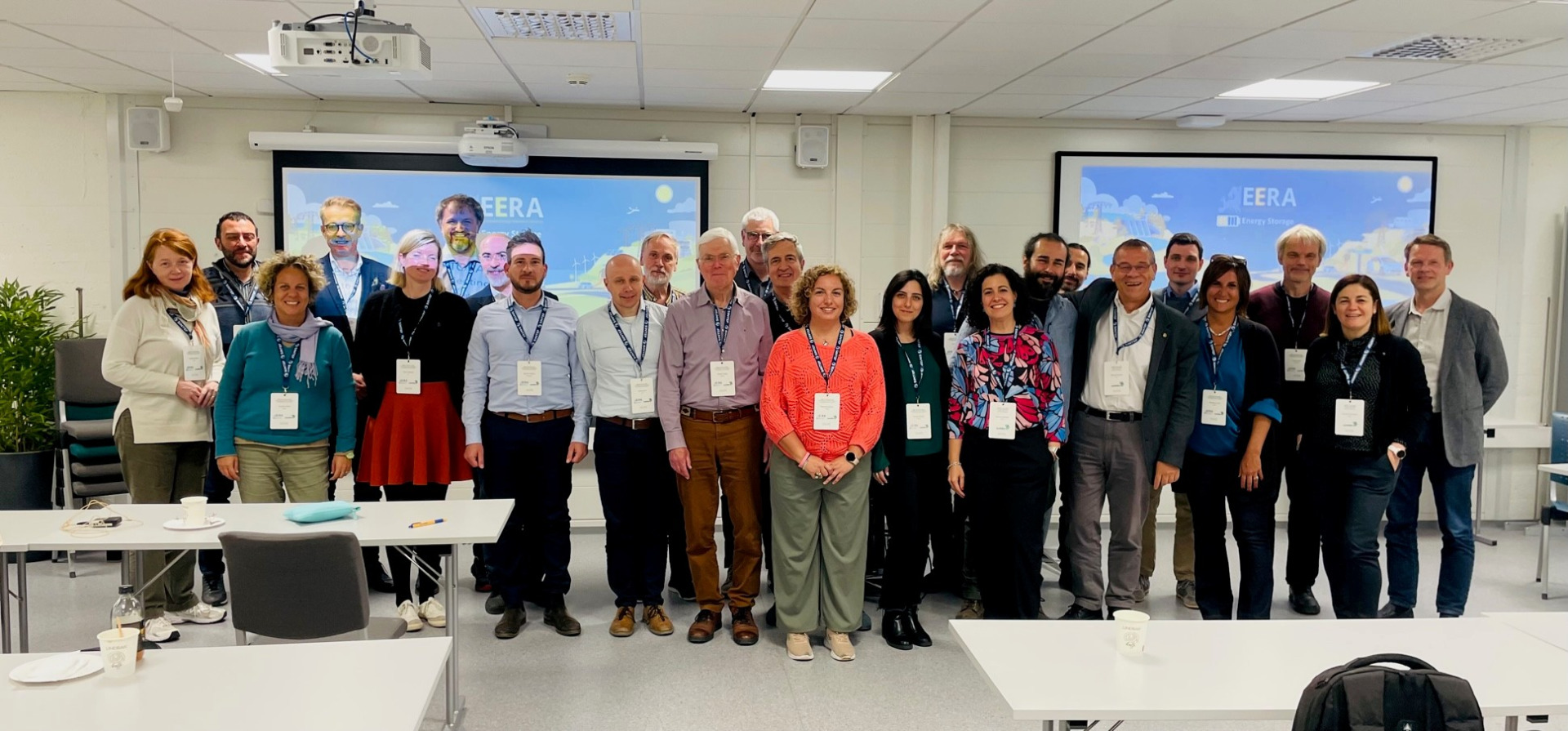As Europe moves towards a greater share of energy generated by renewable energy sources such as wind power and solar photovoltaic, our energy systems will require a greater degree of flexibility to adjust for the fluctuations in energy production. Energy storage is – in combination with other technologies – well suited to respond to this challenge and ensure a continued security of energy supply at any time. The EERA Joint programme for Energy Storage is the first pan-European programme to bring together all major fields of energy storage research. JP ES therefore represents a unique opportunity to align research and development activities in the field.
The EERA Joint Programme on Energy Storage (JP ES) was officially launched in 2011 and is coordinated by Karlsruhe Institute of Technology in Germany. This JP strongly fosters the efficient development of new energy storage technologies and supports the SET Plan objectives and priorities by “pooling and integrating activities and resources including international partners” on all levels of the value chain. From the collaborations within the JP ES and with other Joint programmes, synergies result and a long term, durable integration of European Research capacities in energy storage is achieved. Strong links to industrial partners support the transfer of research outcomes to innovation and products in order to establish a strategic European leadership in energy storage. At present, 40 research organizations and universities from 15 different European countries are participating in the JP on Energy Storage. Each JP ES participant has a wide experience in specific fields pertaining to energy storage, important research infrastructures and relevant ongoing research activities, funded by national or European resources.
IN MEMORIAM
Adelbert P.H. Goede (1945 – 2026)

On 26 January 2026, we were deeply saddened by the sudden passing of Adelbert Goede. At 80 years old, Adelbert remained remarkably full of life and determination, actively engaged in science until the very end.
Among his many contributions to renewable energy, Adelbert’s impact within the European Energy Research Alliance — and in particular the Joint Programme on Energy Storage (JP ES) — stands out prominently.
Active in JP ES since 2013, Adelbert quickly became a central and respected figure within the European network. In 2015, he took on the role of SP2 coordinator, a responsibility he carried with exceptional dedication until 2022. In this position, he consistently emphasized scientific quality, transparency, and societal relevance, ensuring that the work within SP2 meaningfully contributed to Europe’s renewable energy ambitions.
Adelbert had a rare ability to connect people and ideas. He was a constant presence at workshops and meetings across Europe, tirelessly building bridges between energy storage technologies. Under his coordination, collaborations were strengthened, new project ideas were shaped, and European partnerships matured into concrete Horizon 2020 successes.
In May 2018, Adelbert organized the EERA JP ES meeting in Eindhoven, creating a memorable opportunity for participants to engage directly at DIFFER premises. His warmth and enthusiasm during the visit allowed colleagues to experience firsthand the innovative research environment he had helped shape, combining scientific rigor with an open and welcoming atmosphere.
Adelbert’s commitment to JP ES exemplified his broader conviction: that science must contribute tangibly to society. His energy, persistence, and unwavering sense of responsibility significantly shaped the European energy storage landscape.
We remember him with great respect and gratitude for his remarkable leadership within JP ES, for his kindness and unfailing positivism in bringing people together, and for the lasting mark he left on the EERA research community.
Photo: Last EERA JP ES meeting in June 2025 in Trondheim.
